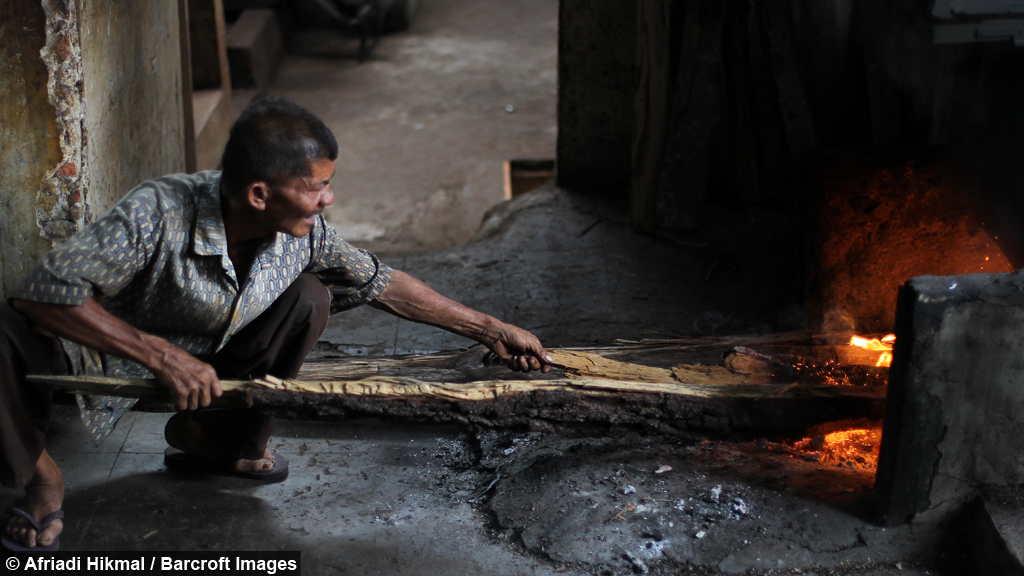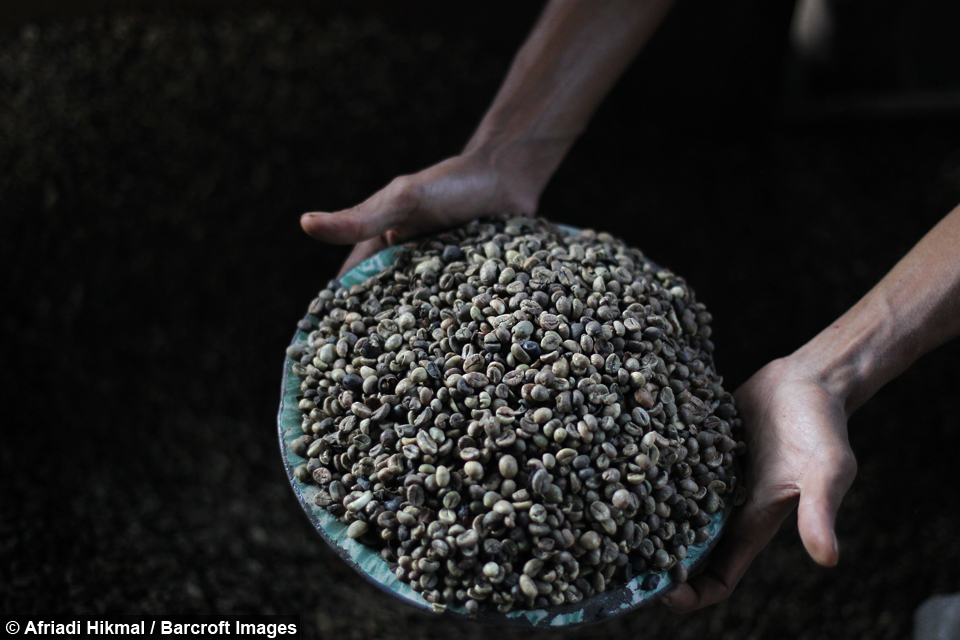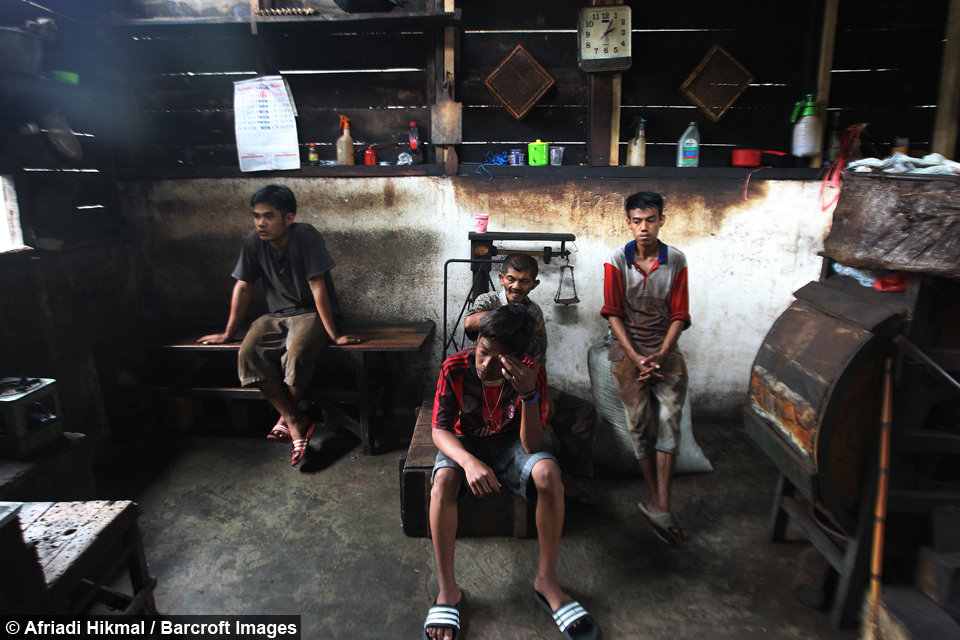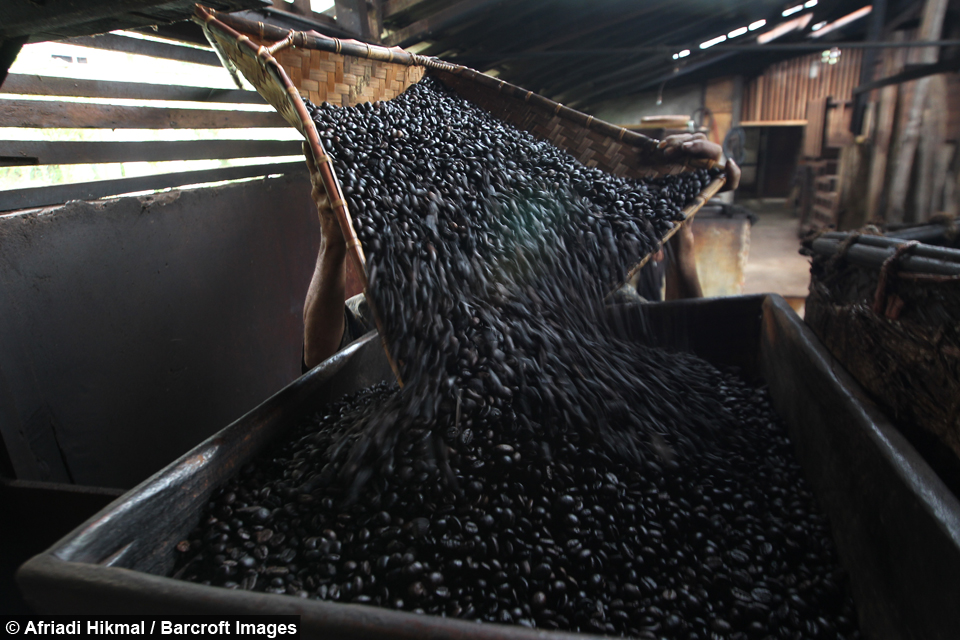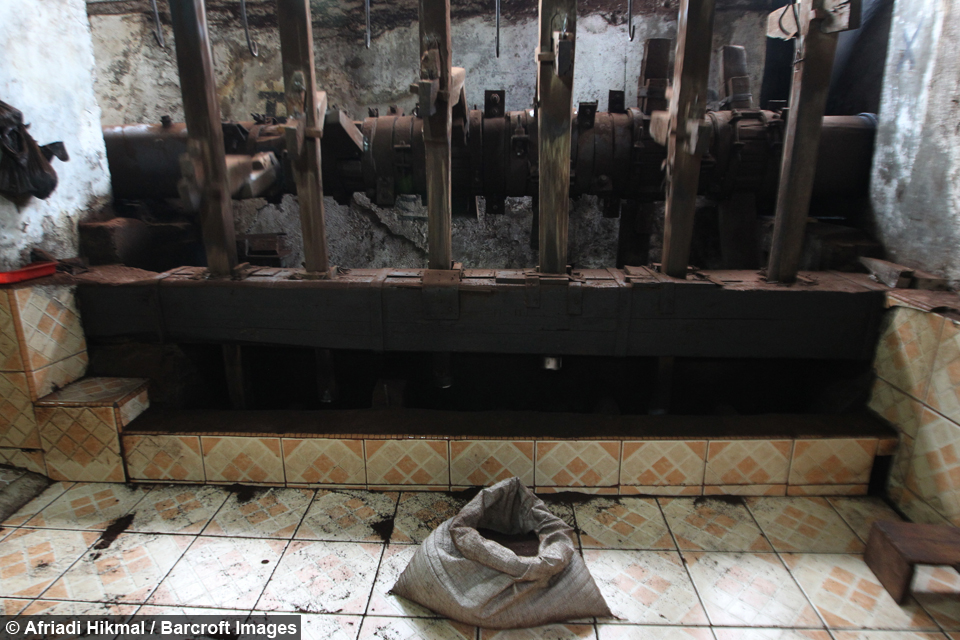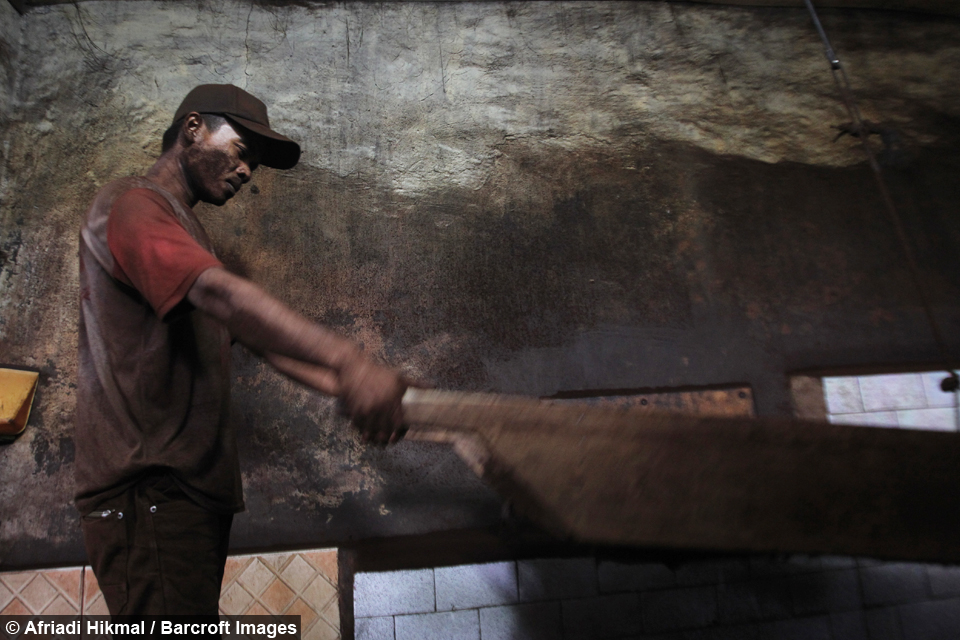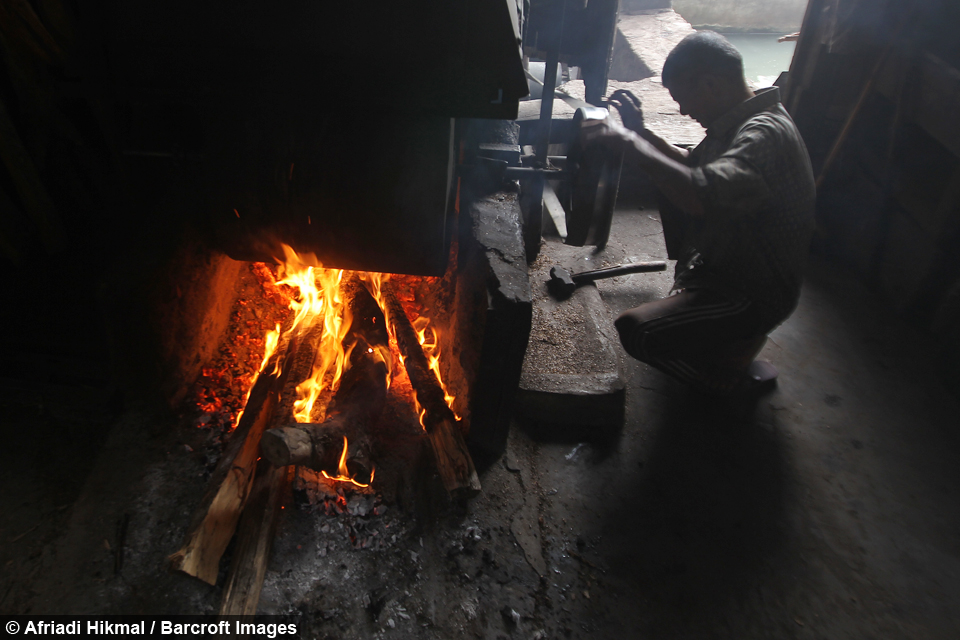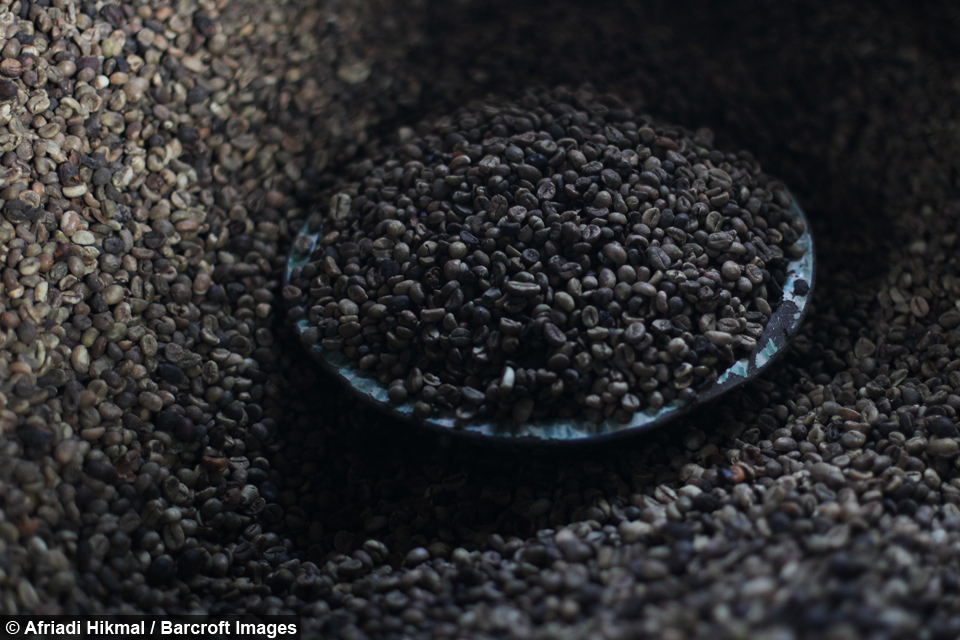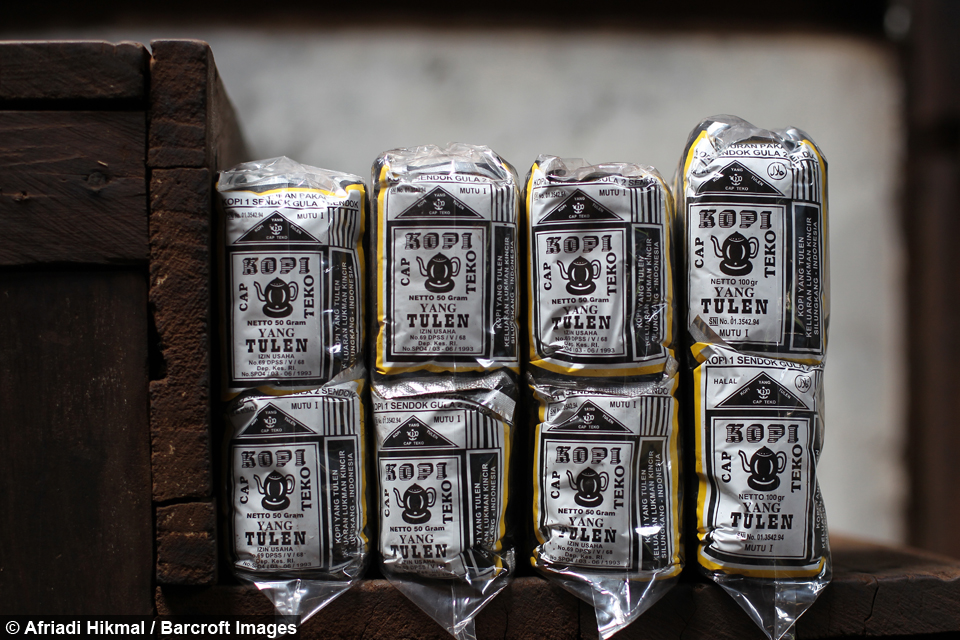Traditional Indonesian Coffee Factory Hasn't Changed In More Than 50 Years
By Danny Baggott @Dan_Baggie
Scroll down for the full story
Relying on human power and water from the river Batang, propellers and windmills power steam to rotate the coffee around vessels – in just one day, the factory produces more than 400 kilograms of coffee.
In October 2016, freelance photographer Afriadi Hikmal visited the mill in West Sumatra to witness the poor working conditions.
Afriadi said: “The coffee mill was established by Lukman Kincir more than 50 years ago and is still running today using flowing water to turn the wheels for their production.
“It uses human power and water, not electricity for the process – I was surprised that such a working place still existed.
“I am proud to be able to witness their powerful hold of tradition.”
With just seven employees producing the coffee, the process requires a fast working pace.
“The workers are dirty because the coffee powder covers their hands and face,” Afriadi said.
“Every 30 minutes they have to clean themselves with water.
“Their location is desolate and the building is made of wood – it has been the same since 1950.
“The atmosphere is dark and quiet, there is only a sound of mortar and pestle.”
Whilst their working conditions do not meet the expected standards, their method of making the coffee remains eco-friendly and some of the workers are said to be satisfied with their job.
Afriadi said: “They do eco-friendly production – they buy coffee beans from coffee farmers and use natural sources to turn the wheels for production.
“Some workers are neighbours of the factory and have family ties – they are proud to carry on the traditional coffee making business.”
